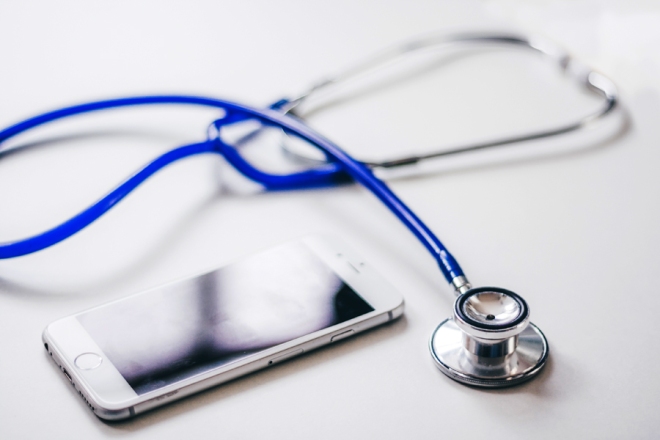I remember my symptoms all too well. Chest pain. Back pain. A soreness around the ribs and difficulty breathing deeply, as though I was wearing an invisible corset. Anxiety growing like a cancer in my stomach and my heart.
Which was why, when I experienced similar symptoms a couple of weeks ago, I immediately imagined the worst. I pictured my cardiologist making that face, the face a doctor makes when they have a feeling something is wrong but don’t want to worry the patient. He would send me to get an echocardiogram, where I would watch the tech attempt her best poker face as she registered the bad news. Later I’d get the call — “Ms. Berkley, I’ve just read your results and I find them concerning…”

The symptoms appeared on a Monday night, catching my full attention when they were at their worst the following day — not severe by any means, but moderate enough to worry me. I had a regular follow-up appointment scheduled that Thursday. I told myself to hang in there, not to think about it, to pretend I believed it was just stress and poor sleep habits. But I remembered making that same argument to myself back in 2014, and I remembered just how wrong it turned out to be.
At my appointment, a nurse came in and ran an EKG before the doctor even walked in the room. When the cardiologist arrived, I explained my symptoms — specifically the pressure in my chest and the pain between my shoulder blades — and while he didn’t make that face, I could tell he was listening intently. He reviewed my EKG and checked my pulse (at several places) and took my blood pressure on both arms. He told me everything looked normal and healthy. However, because the symptoms I described could potentially indicate a very serious problem, given my medical history, he scheduled an echocardiogram ASAP to be safe.
Again, I had to wait and hope for the best, which is something I clearly still need to work on. My symptoms abated, but my fears did not. When echo day finally arrived, I subconsciously braced myself for bad news. As the tech ran the ultrasound, I kept my eyes fixed on the wall on the opposite side of the room to keep from seeing her expression and reading too much into it. I didn’t want to jump to conclusions, not realizing I already had.
When the call came later that afternoon — “Ms. Berkley, I’ve just read your results, and everything looks fine. Your valve is functioning well, and there is no swelling or dilation of the aorta” — I thanked him in a mild voice, outwardly as calm and as cool as a cucumber. Then I hung up the phone, sat down, and burst into tears of utter relief.

All I could think was, I’m not dying. I don’t need another surgery. My heart isn’t about to explode. I’m okay, I’m really going to be okay.
I’ve seen other heart patients describe similar reactions to good post-op news. As fellow blogger Anthony Dilemme related in a recent post about his two-year anniversary and the good results of his annual echo,
“The relief was astronomical. I didn’t realize how much of a weight this was on me. In the car, on the way home, I completely broke down for a solid 2 minutes.”
It seems many of us have a habit of expecting the worst from our medical results, regardless of whether we’ve been experiencing symptoms or not. While it’s important to take care of and pay attention to your body — for instance, never ignore symptoms like chest pain or other unusual sensations — it’s also important not to jump to conclusions and stress out over what may actually be just stress. Stressing out over stress does nothing but create a vicious, vicious cycle.
Moreover, as several people at the time pointed out to me, even if my symptoms had been an indication of something worse, I could not have done anything about it on my own. Worrying certainly wouldn’t help — in fact, if it had any affect at all, it would be a negative one, as stress is notoriously bad for your health, especially your heart.
So what’s the best thing to do when you think something might be wrong? Call the doctor. Go to an emergency room if you think you need to. Schedule an appointment. Do whatever you need to do to get the help and information you need, and then let it go. Let the pros handle it, and focus your attention instead on taking care of yourself as best you can. Eat healthy, stay hydrated, and do whatever you need to do to keep a cool head and a steady heart.

I’m not saying you should assume it will always be good news — after all, if you’re already a heart patient, you know all too well it won’t. Instead, assume nothing. Expect nothing. Hope for the best, be prepared for the worst, and know that in doing so you’ve done everything you can. It’s enough.
What about you, dear reader? Do you expect bad news even when you have no particular reason to, or are you more of an optimist? Do echocardiograms still make you nervous? Let me know in the comments! And please, if you found this post at all helpful, feel free to like it, share it, and subscribe!

At 8 months out from surgery I still get anxious about every little twinge. If my heart feels like it’s beating faster than usual, or if my breath comes a bit quickly, or even if I feel a gurgle in my chest, I imagine all kinds of awful things. So far the most helpful technique for me has been meditation. Distraction helps too. I wish I weren’t overreacting this way and hope that I move past it with time.
LikeLike
I haven’t the discipline for proper meditation, but I do find that yoga helps as it gives me an activity to focus on — stretching — as well as regulating my breathing and, therefore, my stress response. Distraction, as you said, does work fairly well sometimes too. On the day that the symptoms I described in this post were the worst (and I was freaking out the most), I finally just stopped what I was doing, grabbed a book, went outside, and started reading and napping until I felt better. I realize not everybody has a schedule as flexible as mine, but sometimes a day off isn’t just a nice idea — it’s practically necessary.
I do think my reactions are getting better — slowly — and I hope that’s at least a little comforting. I also hope that your anxiety fades with time as well.
Thank you so much for your comment, by the way. It’s nice to know I’m not just shouting into the void here. :)
LikeLike
Good news that all is well. My philosophy is to not worry about something until I know that I have something to worry about and even then, I rather plan than worry. Your mind can image all sorts of things but know the facts is best. But you should listen to your body and do’t assume that everything is alright. If you feel something is wrong, get it checked out. Knowledge is power. Glad to hear you’re fine.
LikeLiked by 1 person